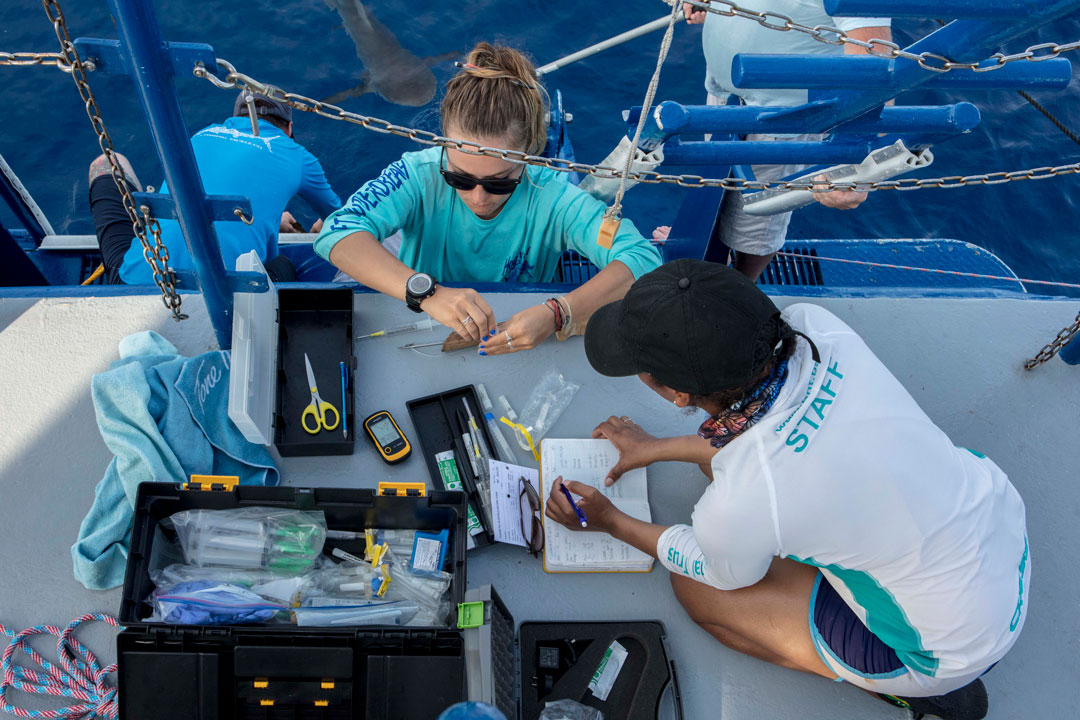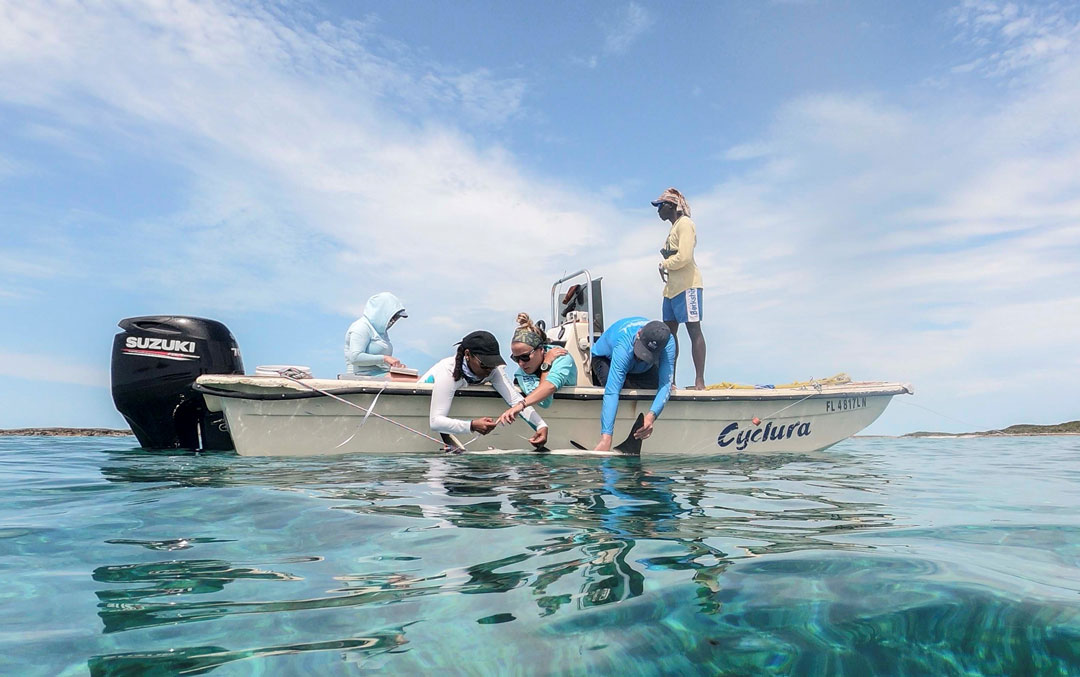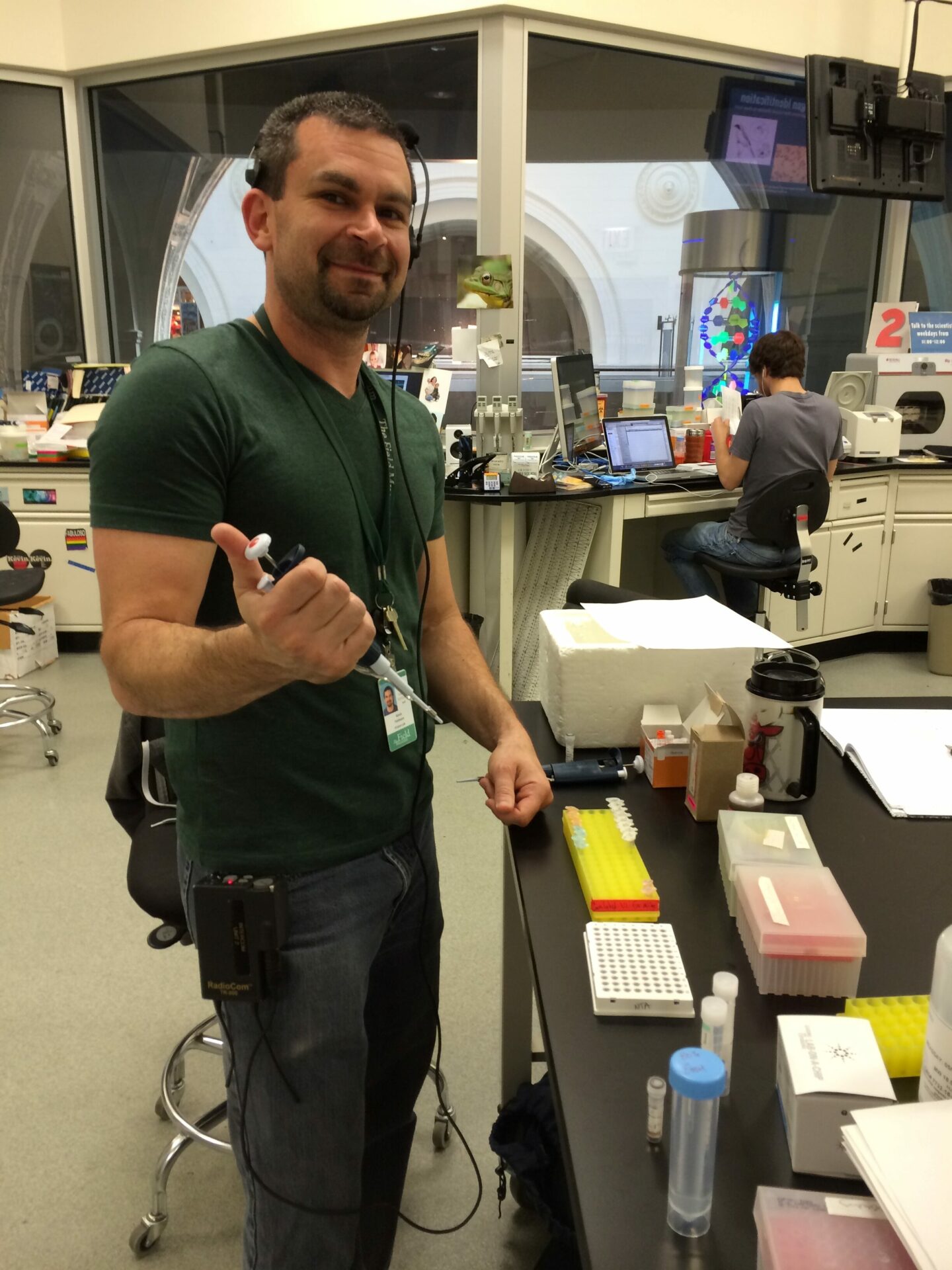Out of the darkness and into the light
Scientific discovery gives a new purpose to archived genetic samples.
Tucked away in the overcrowded fridges and freezers of shark researchers around the globe sits a treasure trove of genetic data, just waiting to be analyzed. Over decades of field research, scientists have collected and archived hundreds, if not thousands, of vials of fin clips from many of the ~500 known shark species on Earth. Fin clips can be easily and efficiently collected, providing exceptional genetic data that – when stored properly – will remain viable for years. A lot of these samples, however, have yet to see the light of day.

Members of Shedd Aquarium’s Conservation Research team logging shark samples aboard the R/V Coral Reef II in The Bahamas. Photo © Shedd Aquarium/Brenna Hernandez
So…why are they collected?
Many scientists in the global shark research community believe that when we encounter a shark, regardless of the research focus that led to the encounter, we have a responsibility to gather as much data as we can (as allowed under permitting and within reasonable handling time). I, too, share this opinion which I established early in my career. In my first field experiences as a young undergraduate student, I remember asking my mentor, Dr. Samuel Gruber, what or whom he was collecting samples for. For some he knew exactly but for others he would say, “I don’t know yet, but one day they could be essential for a future study.”

Co-Project Leader, Dr. Steve Kessel, and his field research team collecting data/samples from a Caribbean reef shark in The Bahamas. Photo © Shedd Aquarium/Brenna Hernandez
Well, ‘one day’ has come for Chicago’s Shedd Aquarium and Field Museum who, in partnership with the Save Our Seas Foundation and collaboration with like-minded shark researchers, have embarked on an investigation that will unearth dormant, archived samples for a new and exciting purpose. Using Caribbean reef shark (Carcharhinus perezi) fin clips collected and archived over many years by researchers in multiple countries, Dr. Kevin Feldheim and I will examine the genetic variability and population connectivity of this endangered species across its range. As a result, we will be better equipped to understand the population connectivity and recovery potential of this important species.

Co-Project Leader, Dr. Kevin Feldheim, working in the lab at the Field Museum to analyze fin clips from Caribbean reef sharks. Photo © Shedd Aquarium/Brenna Hernandez
This study would not be possible without the foresight of many collaborating shark researchers who took the stance that proactively collecting samples could one day yield important results for our understanding of this and other shark species. So, we leave you with a call to action. If you read this and happen to have Caribbean reef shark fin clips tucked away in your overstuffed freezer, please contact us. Because, as Dr. Gruber often liked to say, “the genetics can tell us the story.”
